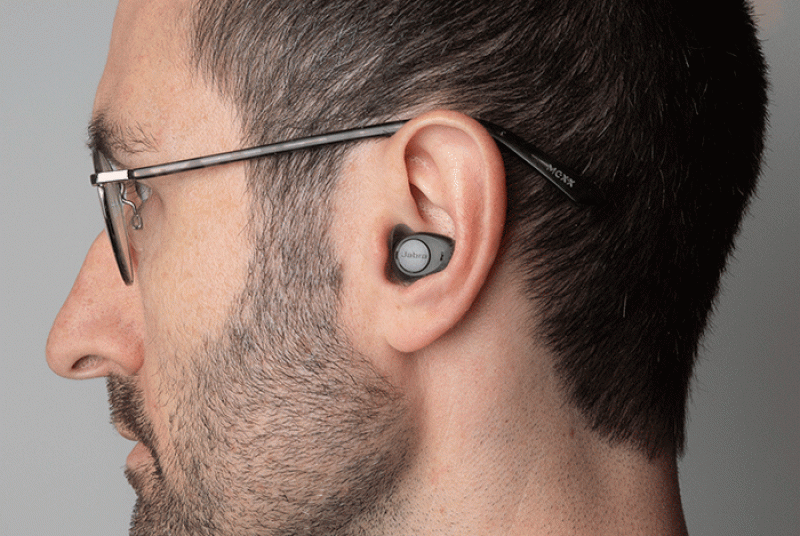
SHS audiologist ‘hopeful’ about hearing aid ruling
A decision by the Food and Drug Administration that permits hearing aids to be sold without consulting a medical professional could be a positive development, Speech and Hearing Science audiologist Sadie Braun said.
But, as she’s fond of saying, consumers might have to “play it by ear”.
The FDA ruling, which was finalized in August and took effect on Oct. 17, allows adults with mild or moderate hearing loss to purchase a hearing aid without prescription. The ruling will create more competition and lead to quick technology advancements and lower device costs, but without FDA approval a company cannot classify its product as a “hearing aid.” Per the FDA, the devices covered are air-conduction hearing aids, which fit either in the ear canal or sit behind the ear. Other types of hearing devices include cochlear implants or bone-anchored systems.
While there are plenty of positives to the new rule, it is important to stress that hearing aids are not a one-size-fits-all proposition, Braun said.
“I am a little nervous about the idea that some people who are self-diagnosing may not actually have a mild-to-moderate hearing loss,” she said. “They might be getting hearing aids that are not ideal for them. More importantly, I'm worried that by removing audiologists and ear, nose, and throat doctors from that process altogether, that patients might not get the care that they need for some of those more significant auditory and medical conditions that can be related to the ears and can be very serious if left untreated, such as acoustic neuromas, and Meniere's disease, to name a couple.”
Given those concerns, Braun recommends that anyone who is considering trying an over-the-counter device make an appointment with an audiologist for an initial hearing test.
That said, Braun believes the ruling will end up being a good thing for “our patients, for audiology, and for the hearing aid industry on the whole.”
“I think that this legislation definitely opens the door for some of our traditionally underserved and underrepresented populations and communities so that they can obtain devices that can help them hear better that they might not have otherwise been able to obtain,” she said, citing the cost of hearing aids.
The average price for a pair of prescription hearing aids is $4,600, but OTC hearing aids are expected to cost far less. The federal government estimates Americans could save up to $3,000 on hearing aids by choosing OTC brands rather than prescription devices. If that’s the case, the average cost for a pair of OTC hearing aids would be around $1,600. One wrinkle is that there are now several different devices that can be used to amplify sound for a multitude of purposes: hearing aids and Personal Sound Amplification Products, better known as PSAPs, and it can be difficult for consumers to differentiate them.
“The big difference with PSAPs is that they are not meant to treat hearing loss,” Braun said. “They are actually for normal-hearing individuals only. And they're therefore not classified as medical devices. Instead, they're considered electronic products. Because of this, they are not regulated at all by the FDA. One example of something the FDA determines with medical devices is age limitations and requirements, and they have stated that OTC aids are ‘not intended for use by individuals who are younger than 18’. However, while they say that in the rules and regulations, they do not require age verification before over-the-counter hearing aid purchase. But on PSAPs, for example, there's no recommended requirement.”
Another benefit of the FDA OTC rules, Braun believes, is they will go a long way toward ensuring safety standards for OTC devices.
“The rules and regulations that took years to develop and fine-tune are critical pieces in this OTC legislation,” she said. “We really have to have those built-in safety mechanisms to protect the consumer, to make sure the consumer does not get injured. Also, we have to make sure that these devices meet a set of standards, a set of criteria, to be sure that they do what they claim they will do, or what they are intended to do. Without those regulations in place, I would be much more wary of recommending OTC hearing aids as an option for some of my patients who have mild-to-moderate hearing loss.”
Still, Braun cautions that in the early stages of the aftermath of the rules, much is yet to be determined, and she stresses the need for professional guidance.
“Each person has a different and unique set of needs,” she said. “Some individuals can navigate that process, on their own and potentially be successful with over-the-counter devices. I think that other individuals really need that guidance of a professional to help them through the entire process from start to finish and to be there for support and assistance the entire way. Over-the-counter hearing aids cut out the service component, and that professional service component is what a lot of patients really rely heavily on.”
One way to access that professional service is through SHS’s Audiology & Speech-Language Pathology Clinic. You can reach clinicians by calling 217-333-2205 or emailing shsclinic@illinois.edu.
